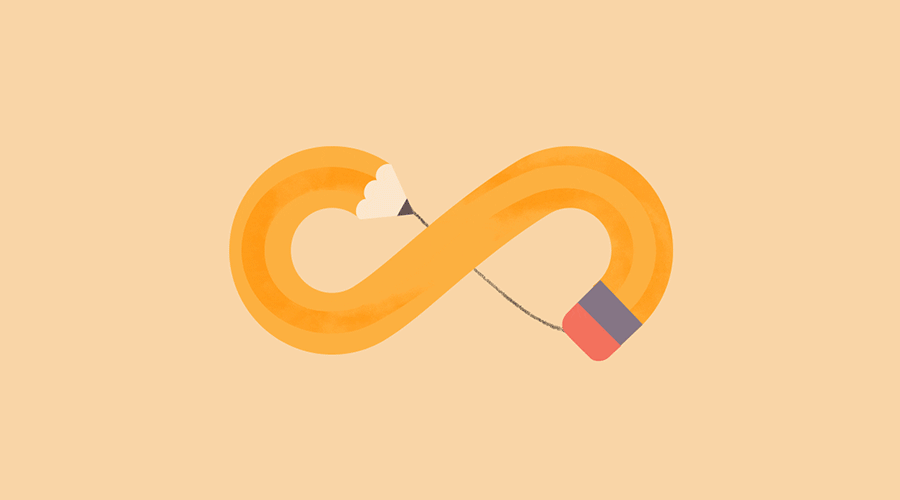Turn your app idea into a reality with our Ultimate Starters' Guide.
Learn how you can turn your app idea into a reality with our Ultimate Starters' Guide.
When the world went into lockdown, I'm sure most of us thought it would last for a month, maybe two max, NBD.
As we near the end of 2020, it's clear that we're in this for the long haul. But what will the post-pandemic world look like? No one can predict where we'll be once we emerge from the pandemic, but we'll likely be entering a strange new world. Business models will have changed. Our workplaces (if we still have any) will be different. And necessary job skills will have evolved.
I recently spoke at a Virtual Career Week for NYU called "Job Skills to Succeed in a Post-Coronavirus World" – inspired by a Forbes article published in April 2020. It highlighted three specific skills that are most likely to be in high demand in the wake of COVID-19: creativity and innovation, adaptability and flexibility, and emotional intelligence and leadership. As a creative director, I was excited to speak on the topic of Creativity and Innovation as it's part of my day-to-day.
But the subject of Creativity and Innovation is relevant to everyone! It isn't exclusive to my field of work, design, or technology.
We're experiencing rapid moments of innovation as businesses adapt to new consumer behaviors and their changing needs.
With the pandemic and quarantine disrupting our way of life, we are currently living in one of the most innovative times we may see in our lifetimes. We're experiencing rapid moments of innovation as businesses adapt to new consumer behaviors and their changing needs. And whether you're conscious of it or not, you're innovating every day and participating in this shift in the way we live:

Innovation in Fitness: The entire health & wellness industry has undergone a massive surge toward digital innovation. Traditional gyms and in-person classes have transitioned to virtual business models. Zoom workouts became a thing and video content became more important than ever. There has been a surge in telehealth wellness and a shift towards digital consultations as more people remain remote.

A New Dining Experience: If fitness isn't your thing, I'm sure you can relate to the once simple joy of eating out. In New York, the food & dining industry has radically changed as restaurants searched for ways to innovate and change the way they operate.
Restaurants shifted their menus to focus on takeout and accessible menus for delivery. Then came a gift from the gods – to go drinks! In the past months, we've seen outdoor dining change the very landscape of our city. Our sidewalks and streets are now makeshift pop-up dining experiences.


Creatives have the innate desire to be pixel perfect in their designs. Before putting our ideas or ourselves out there, we continuously strive to present the best and most ideal version of ourselves. This sentiment is one that everyone can relate to, even if you're not in a creative industry. Think about Instagram. How many times have you taken a photo of something only to spend hours editing and coming up with the perfect caption?
This concept battles against the idea of perfection. When you put so much stock into the idea of perfection, you eventually reach a point where your work will never be good enough. You become so focused on imperfections that you begin doubting yourself. You find the need to edit and re-edit your work, all while telling yourself it's "still not good enough." And so you never share it or put it out into the world.
Not everything you do is precious. Not every idea you have will be something people buy into. If you want to be an innovator, you need to be willing to put things out there and make mistakes. More importantly, you have to learn from those mistakes and continuously work toward improving the process. Keep your end goal in mind but also realize the process of getting there is just as valuable. Flexibility and the ability to pivot your concept or how you work are incredibly valuable skills.
In tech and product design, we have this concept called a Minimum Viable Product or MVP. The idea behind it is to create a product with the bare minimum features while still delivering an immediate impact.

Individuals tend to focus on a mental mode centered around a Big Bang Delivery approach — building something until it's 100% complete and delivering at the end. An MVP mental model flips the script. It looks at the Big Bang Delivery and says, well, that works, but it would take a long time for me to get there. How can I come up with a solution now that provides some immediate impact?
This thinking benefits you in two ways. By putting something out there faster, you're able to get more feedback sooner. And that feedback will help you determine if you're on the right path or if you need to pivot. It can help you make smarter decisions that are informed by actual knowledge and not your assumptions. This working model minimizes the number of wasted hours spent because you're focused on smaller incremental deliveries versus a big bang delivery.
Imposter syndrome is a phenomenon where a person thinks that they don't deserve their success. According to an article published in the International Journal of Behavioral Science, approximately 70% of people experience imposter feelings at some point in their lives. 😳
If you've ever heard an inner dialogue and thought to yourself, "I was just really lucky!" "I feel like a fake!" "My boss will realize I'm not as smart as I seem." THAT is imposter syndrome.
The core of the matter is that it's next to impossible to do something impactful and innovative without sometimes feeling like a fraud or feeling like you have no idea what you're doing. But that's a good feeling to have. Why? It indicates you're challenging yourself. To grow, you need to push yourself into new and unexplored territories. Being uncomfortable and feeling like you don't have all the answer signals that you're gaining experience.
The pandemic offers a unique opportunity because everyone is trying to figure out what the future looks like. Opportunities to think outside the box, be creative in your thinking, and propose innovative or creative solutions are things everybody is looking for right now.
I wish I had come up with this concept myself, but another famous Mark is the brainchild behind this concept. Author Mark Manson, who wrote "The Subtle Art of Not Giving a F***," developed the principle. The idea states that action isn't just the effect of motivation. It's also the cause of it.
Most people commit to an action only if they feel a certain level of motivation. Many of us can relate to the sentiment of waiting for inspiration to strike or feeling motivated, which often leads to procrastination.

But the thing about the motivation chain is that it's not only a three-part chain but an endless loop:

When you look at the motivation this way, you can reorient your mindset the following way:

Manson found that often when doing something, even the smallest of actions, it would soon give people the inspiration and motivation to do something else. They had sent a signal to themselves, "OK, I did that, I guess I can do more."
There's a misconception that to be genuinely creative and innovative, you need to have these million dollar ideas as the foundation for what you're doing. That's not the case. A lot of brilliant ideas have come as a cause of working at a much smaller scale. If you have an idea, start small and take small actions, which will lead to more inspiration down the line.

Before you're able to be good at something, you're probably going to be bad at it at first. Really bad. But we all start there, so don't let the fear of failure hold you back. To be innovative and more creative, you need to be willing to make mistakes and learn. Test the waters and put yourself out there so you can make smarter and informed decisions moving forward.
Don't feel like you have to wait for that big bang delivery. Start Small. Taking small actions now will have a compound effect on your future. The more you can accomplish and get done, no matter how small, will pave the way. Taking that action will empower you and make you feel inspired.
If you want to learn more about the creative process or for speaking opportunities, connect with us to continue the conversation! Email info@majestykapps.com or go to our contact form.
Stay in the loop! Join our newsletter for monthly updates on industry news, company updates, recent work and job openings.